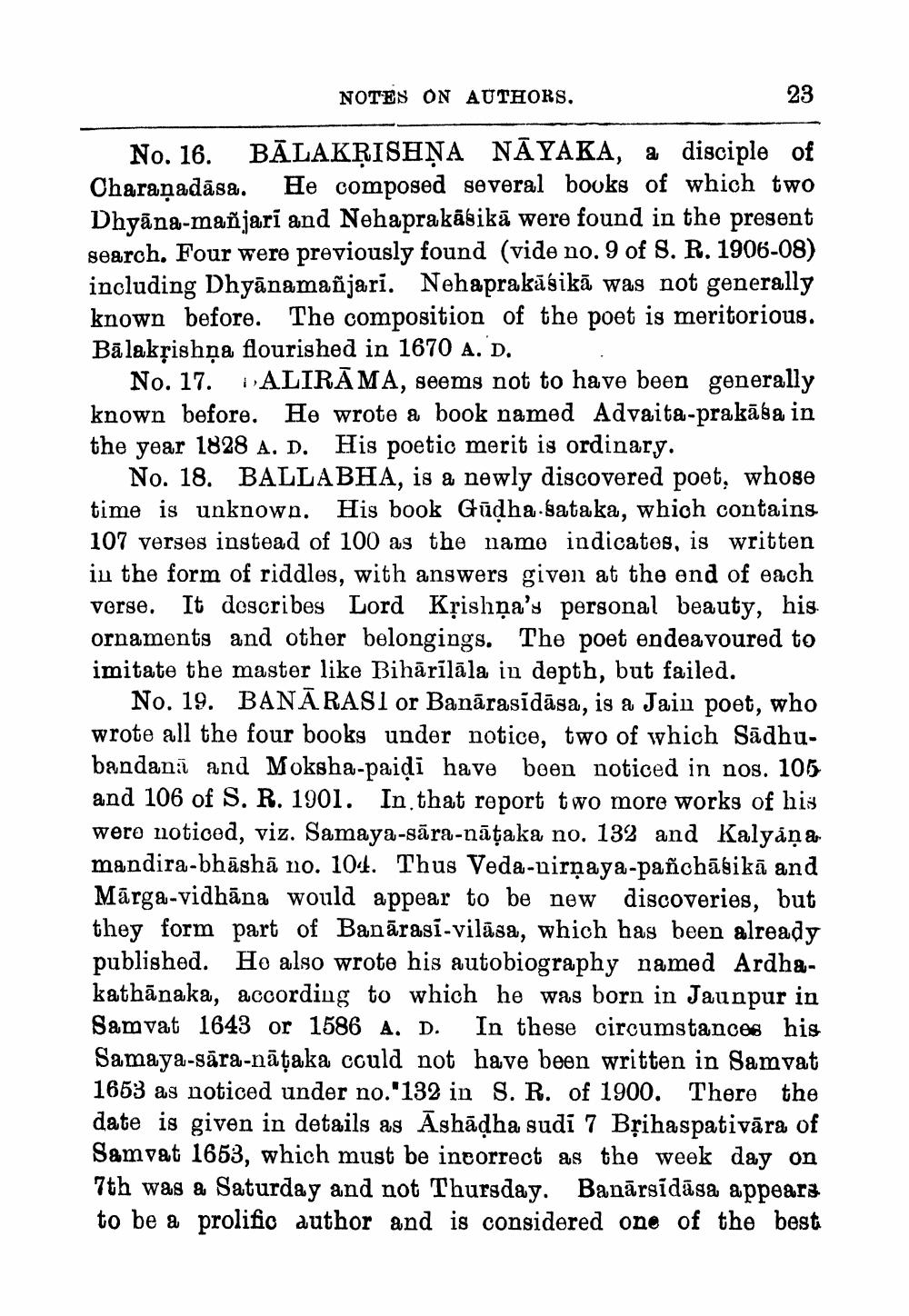________________
NOTES ON AUTHORS.
23
No. 16.
BĀLAKṚISHŅA NĀYAKA, a disciple of Charaṇadāsa. He composed several books of which two Dhyana-mañjarī and Nehaprakasika were found in the present search. Four were previously found (vide no. 9 of 8. R. 1906-08) including Dhyanamañjarī. Nehaprakasika was not generally known before. The composition of the poet is meritorious. Balakrishna flourished in 1670 A. D.
No. 17. ALIRĀMA, seems not to have been generally known before. He wrote a book named Advaita-prakāśa in the year 1828 A. D. His poetic merit is ordinary.
No. 18. BALLABHA, is a newly discovered poet, whose time is unknown. His book Gudha sataka, which contains 107 verses instead of 100 as the name indicates, is written in the form of riddles, with answers given at the end of each It describes Lord Krishna's personal beauty, his ornaments and other belongings. The poet endeavoured to imitate the master like Bihārīlāla in depth, but failed.
verse.
No. 19. BANARASI or Banarasīdāsa, is a Jain poet, who wrote all the four books under notice, two of which Sadhubandana and Moksha-paidi have been noticed in nos. 105 and 106 of S. R. 1901. In that report two more works of his were noticed, viz. Samaya-sara-nāṭaka no. 132 and Kalyāṇa mandira-bhasha no. 104. Thus Veda-nirnaya-pañchāsikā and Marga-vidhana would appear to be new discoveries, but they form part of Banarasi-vilasa, which has been already published. He also wrote his autobiography named Ardhakathanaka, according to which he was born in Jaunpur in Samvat 1643 or 1586 A. D. In these circumstances his Samaya-sara-naṭaka could not have been written in Samvat 1653 as noticed under no."132 in S. R. of 1900. There the date is given in details as Āshāḍha sudi 7 Brihaspativāra of Samvat 1653, which must be incorrect as the week day on 7th was a Saturday and not Thursday. Banarsidāsa appears to be a prolific author and is considered one of the best




